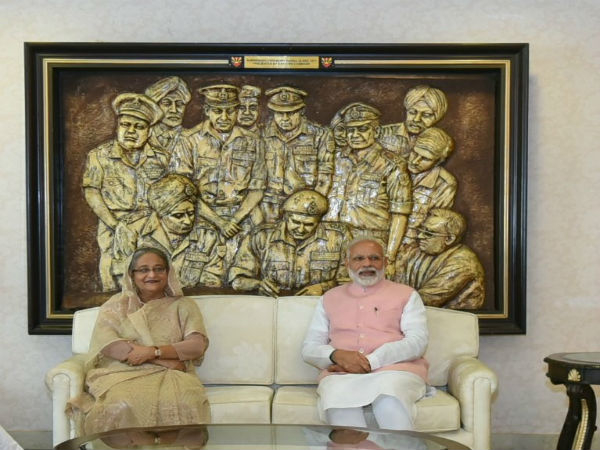Pakistan doubted whether Bangladesh would sustain as an independent nation, but it is now well ahead on human, social and economic indices when compared with the country it was liberated from in 1971, a senior minister said here on Sunday.
Information Minister Hasan Mahmud said Bangladesh had the fastest GDP growth rate in the world last year at 8.15 percent and was projected to grow at 8.20 percent this year.
“Under Prime Minister Sheikh Hasina’s leadership, Bangladesh is fast achieving the dream of our forefathers,” he told a group comprising delegates from 20 countries who are here as part of the ‘Visit Bangladesh’ programme of the Bangladesh Foreign Ministry.
“After independence there were doubts among many countries, especially the country from which we had been liberated, whether Bangladesh would sustain as an independent country. But today, on all human, social and economic indices we are well ahead of Pakistan,” he said, addressing the group of 30 delegates from countries such as India, Nepal, the Maldives, the UK, Portugal and Germany.
On social and human indices, Bangladesh is ahead of all neighbours, Mahmud said.
“At the time of independence, life expectancy was 39 years, today it is 73. In India it is 71, while it is 69 in Pakistan. We are well ahead in human index of many other countries,” he said.
Bangladesh now is the second largest ready made garments exporting country in the world, he said, noting that the pace of development in the last decade had been really fast.
The Information Minister asserted that the Sheikh Hasina government believes in complete freedom of press and a pluralistic society.
Criticism is always welcome and the Bangladesh government has even awarded journalists for criticising it as such an environment helps in taking corrective measures and contribute to development, he said.
He said the issue of fake news was a “global challenge” and his government was making all efforts to deal with the menace.
Asked about the challenges ahead, Mahmud said climate change and a “politics of denial” were among them that the government needs to overcome.
Elaborating on the challenge of “politics of denial”, he said that in developed countries all political parties were in agreement on national interest issues, but in Bangladesh, Opposition parties practice the “politics of denial and confrontation”.
The other challenge is of the mentality of some people to criticize always and not appreciate, Mahmud said.
He said criticism and appreciation were both important.
Mahmud also highlighted the government’s efforts to make Bangladesh a middle income country by 2021 and a developed country by 2041 as envisioned by Prime Minister Hasina.
His remarks come a day before Bangladesh celebrates its ‘Victory Day’ on December 16.
Bangladesh’s Liberation War of 1971 began with the declaration of Independence by Bangabandhu Sheikh Mujibur Rahman on March 25, and ended with the liberation of the country from Pakistan on December 16.
Source: MC
Image Courtesy: One India
You may also like
-
Beware! Chinese Hackers are Using VLC Media Player to Spy on You
-
Israel Participates in US Mideast Naval Exercise wih Saudi Arabia and Oman – IMX 22
-
Pakistani Establishment Controlling ‘Family Business’ of Selling Kashmir Narrative, Uses Issue as Survival Strategy: Report
-
After Suspending Twitter ‘Indefinitely’, Nigerian Govt Joins Made-In-India Microblogging Platform ‘Koo’
-
Pam Gosal, First Indian-Origin Woman to be Scottish Lawmaker
